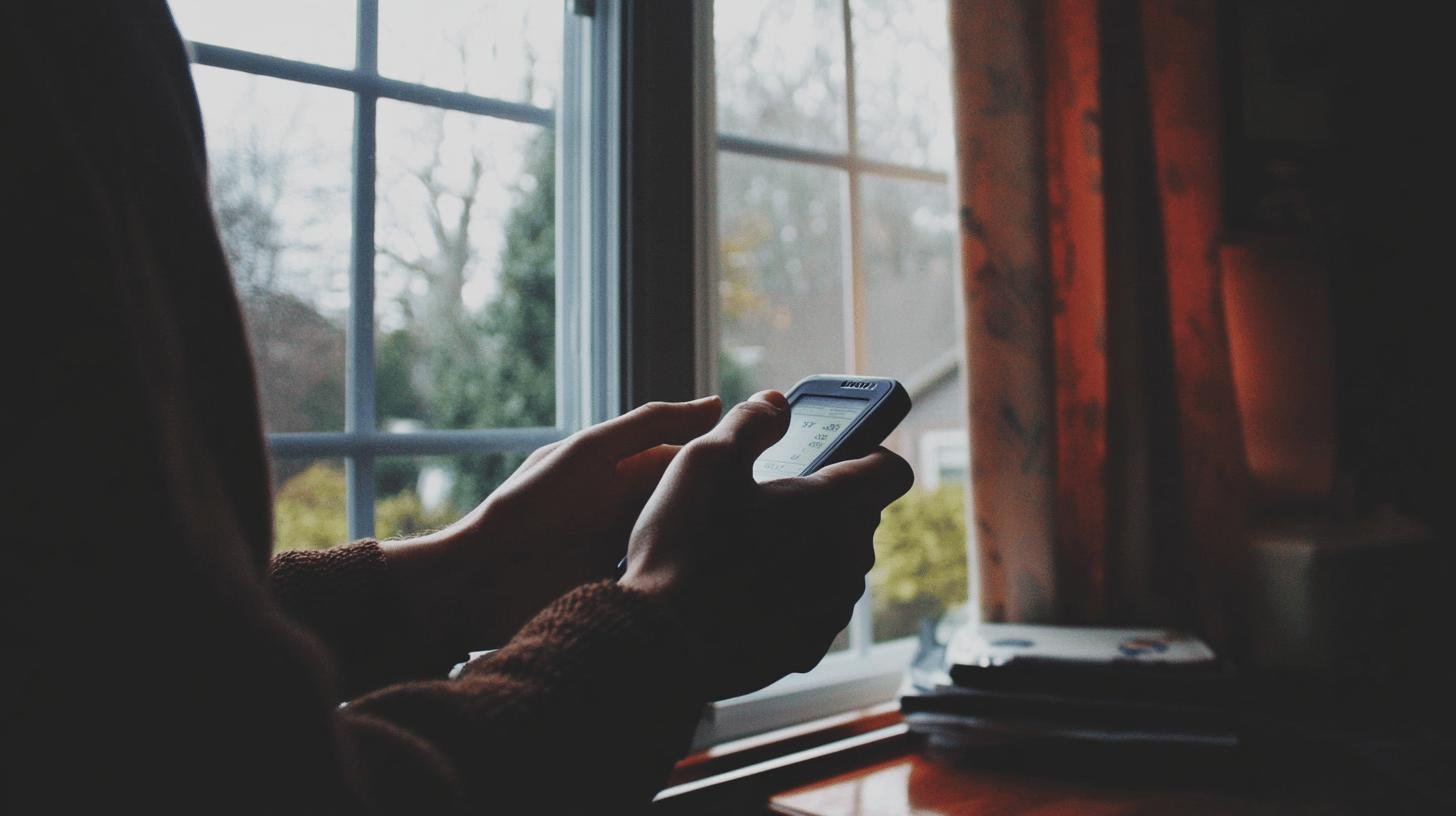TL;DR:
- A balanced, whole-food diet is crucial for diabetes management—focus on fruits, vegetables, whole grains, lean proteins, and healthy fats.
- High-fiber foods include lentils, chickpeas, quinoa, berries, and chia seeds.
- Exercise enhances insulin sensitivity; aim for 150 minutes of moderate aerobic exercise weekly (e.g., walking, swimming, cycling).
- Manage stress through meditation, deep breathing, and yoga.
- Monitor blood sugar with glucometers or continuous glucose monitors (CGM); recognize symptoms of spikes and hypoglycemia.
- Quality sleep is essential; lifestyle changes include regular exercise, smart eating, stress management, and limiting toxins.
- Direct primary care provides personalized healthcare for tailored diabetes management.
How to manage diabetes without medicine is not a common question among people with diabetes. As a diabetic, have you ever thought of the possibility of managing diabetes without popping pills? It might sound too good to be true, but there’s a lot you can do to control blood sugar levels naturally and effectively. With a mix of savvy dietary choices, regular exercise, and stress-busting techniques, you can take charge of diabetes management and perhaps even ditch the meds. Let’s explore how adopting lifestyle changes and understanding your body can lead to better health outcomes and financial predictability—and it all starts with what’s on your plate. Ready to dive in?
Dietary Approaches for Managing Diabetes Naturally
Eating the right foods can significantly impact diabetes management. A balanced diet rich in whole foods is essential. Eating fruits, vegetables, whole grains, lean proteins, and healthy fats gives your body vital nutrients. This approach avoids refined sugars and carbs, preventing dramatic blood sugar spikes.
Avoid taking processed foods and sugary drinks, as they harm blood sugar control. Also, practicing mindful eating and managing portion sizes are crucial for stabilizing your blood sugar.
Let’s talk about fiber! Fiber is beneficial for diabetes management. It slows the digestion of carbs and the absorption of sugar, leading to more stable blood sugar levels. Consider integrating these five high-fiber foods into your diet:
- Lentils
- Chickpeas
- Quinoa
- Berries
- Chia seeds
Conversely, avoid high-fat, heavily processed snacks. Plan your meals around diabetic-friendly options by focusing on whole, unprocessed foods. Think grilled chicken with a side of roasted veggies or a colorful salad topped with nuts and seeds. Balanced, nutritious meals are a solid strategy for naturally managing diabetes.
Exercise and Its Role in Blood Sugar Control

Exercise is a powerful tool for managing diabetes. Physical activity improves insulin sensitivity, meaning your body uses insulin more effectively. This enhances blood sugar control and reduces spikes. Additionally, exercise aids in weight management, which is crucial for controlling diabetes.
Aim for at least 150 minutes of moderate aerobic exercise per week. Activities like brisk walking, swimming, or cycling are great options. Strength training is also beneficial for overall health and glucose levels. Consider trying these exercises:
- Brisk walking: Gentle on joints and easy to incorporate.
- Cycling: Ideal for speed enthusiasts and outdoor lovers.
- Swimming: Offers a full-body workout with minimal joint impact.
- Resistance training: Boosts muscle and metabolism.
Incorporating these activities into your routine can greatly affect your well-being. Start small, like taking a 10-minute walk after meals or enjoying a weekend swim. Consistency is key. With time, managing blood sugar levels can become second nature.
Stress Management Techniques for Diabetes
Stress is like a sneaky villain—it can affect your blood sugar levels without warning. When stressed, your body releases hormones like cortisol, which increases glucose production. This can raise blood sugar levels, complicating diabetes management.
Managing stress is vital for stable blood sugar and overall health. Here are three stress-reduction techniques to maintain calm:
- Meditation: Just a few minutes daily can soothe your mind and body.
- Deep breathing: Simple yet effective for instant relaxation.
- Yoga: Combines movement and mindfulness for stress relief.
Incorporating these practices into your daily routine helps keep stress at bay. Treat it like a mini-vacation for your mind. Whether starting your day with meditation, deep breathing during work, or unwinding with evening yoga, regular practice enhances diabetes management.
Monitoring Blood Sugar Levels Without Medication

Monitoring your blood sugar is like a cheat sheet for diabetes management. It reveals how lifestyle and food choices affect your levels. Regular checks give insights, helping you adjust your approach accordingly.
Using a glucometer at home is convenient for tracking blood sugar. Remember to record your readings and share them with your healthcare provider for tailored advice.
| Monitoring Method | Benefits |
|——————|———-|
| Glucometer | Gives immediate readings, enabling quick dietary and activity adjustments. |
| Continuous Glucose Monitor (CGM) | Provides real-time tracking and insights into long-term sugar trends. |
| A1C Test | Reflects average blood sugar over months, highlighting patterns. |
Recognizing signs of blood sugar spikes and hypoglycemia is crucial for proactive management. Spikes might leave you tired or thirsty, while hypoglycemia may cause dizziness or confusion. Being alert to these signs can prevent further complications.
Lifestyle Changes for Diabetes Control
Sleep plays a crucial role in managing diabetes. Quality sleep aids blood sugar control, as poor sleep can affect insulin sensitivity. Inadequate rest might lead to higher blood sugar levels and increased diabetes risk.
Several lifestyle changes can improve diabetes management:
- Get moving: Regular exercise boosts insulin sensitivity and supports weight maintenance.
- Eat smart: Opt for whole foods and avoid processed, sugary snacks.
- Manage stress: Identify stress-reducing activities like meditation.
- Limit toxins: Avoid smoking and limit alcohol to safeguard health.
Building a balanced lifestyle involves integrating healthy habits into daily life. By ensuring ample sleep, regular activity, nutritious eating, and stress management, you can effectively control diabetes.
The Role of Direct Primary Care in Diabetes Management

Direct primary care (DPC) is akin to having a personal healthcare coach. This model involves paying a regular fee for primary care services, bypassing insurance companies. It allows for more personalized attention from your doctor, which is essential for crafting a lifestyle-centered diabetes plan.
Benefits of DPC for diabetes management:
- Personalized attention: More time with your doctor for tailored care.
- Comprehensive support: Access to services without insurance complications.
- Focus on prevention: Emphasis on lifestyle changes over medication.
DPC might reduce the need for medication. Consistent monitoring and lifestyle adjustments like healthy eating and regular exercise, guided by your DPC doctor, enable early issue detection and tailored management strategies. This proactive approach fosters long-term well-being.
Final Words
Eating right, moving more, managing stress, and regular monitoring make a huge difference in diabetes management. By focusing on these natural methods, you’re working towards how to manage diabetes without medicine.
Direct primary care offers a great way to personalize your approach, making a real impact on your overall well-being. Remember, each step counts, whether it’s choosing wholesome foods or daily walks.
Keep exploring these tips and enjoy the benefits of a healthier lifestyle. Here’s to taking control and living a vibrant, medication-free life!
FAQ
Q: How to manage type 2 diabetes without medication?
A: Managing type 2 diabetes without meds involves regular exercise, a balanced diet focusing on whole foods, stress management, and consistent blood sugar monitoring.
Q: Can you manage type 2 diabetes without insulin?
A: Yes. Many patients manage type 2 diabetes without insulin by adopting healthy lifestyle choices, including regular physical activity and a nutrient-rich diet.
Q: How to control your sugar level immediately?
A: Fastest way? Drink water and do light exercise like walking. These help lower your blood sugar quickly by improving insulin sensitivity and aiding muscle sugar absorption.
Q: What’s the best food for diabetes control?
A: Foods rich in fiber, like beans, oats, and veggies, are awesome. They slow down sugar absorption, leading to more stable blood sugar levels.
Q: Can you manage type 1 diabetes without medication?
A: Type 1 diabetes typically requires insulin as it’s an autoimmune condition. Lifestyle changes can help, but medication remains crucial.
Q: Is there a miracle cure for diabetes?
A: Sorry, no miracle cure here. Effective management involves lifestyle modifications and, sometimes, medication for optimal control.
Q: How can type 2 diabetes be controlled without insulin?
A: Eat well, exercise regularly, manage stress, and monitor your blood sugar. These lifestyle changes can help control diabetes without insulin.
Q: Can I reduce diabetes without medicine?
A: You might! Many reduce their dependency through exercise, a balanced diet, and healthy lifestyle choices. Always work closely with a healthcare provider.
Q: Can I live a long life with diabetes?
A: Absolutely! With good management through diet, exercise, and regular monitoring, you’ll live your best—and longest—life.
Q: Can a type 2 diabetic survive without insulin?
A: Many type 2 diabetics manage without insulin by making healthy lifestyle adjustments. However, some may eventually need it, so monitoring and adapting are crucial.
Q: Can I manage diabetes on my own?
A: You definitely can! With lifestyle changes, regular monitoring, and support from healthcare professionals, managing diabetes is totally within your reach.

